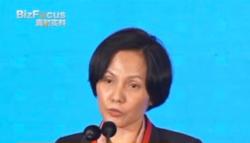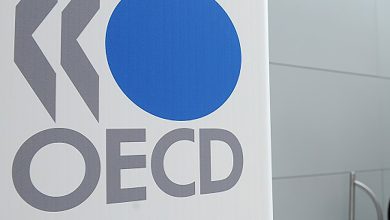Türkiye to update medium-term program, keep main policy framework

Türkiye will update its medium-term program (MTP), which was revealed last year, without changes in the main framework, Vice President Cevdet Yılmaz said Wednesday.
“The update will be in a single medium-term program,” Yılmaz said in the capital Ankara, adding: “We stick to the main framework we announced in 2023; our basic policy is clear.”
“By law, the target is the first week of September,” he emphasized.
Türkiye unveiled last September a new three-year road map centered on structural reforms, reining in price increases while eventually ensuring sustainable growth.
The MTP is prepared annually by the Ministry of Treasury and Finance and the Presidency of Strategy and Budget with a three-year perspective and formalized by the president’s decision.
The program will be updated by considering the developments and changes in the world and Türkiye, according to Yılmaz.
“There are realizations in our structural reform section; there will be a continuation and maybe additions,” he explained.
Yılmaz also underlined that the update will be done in a participatory manner. “All our ministers will hold meetings in their respective fields with those concerned, nongovernmental organizations (NGOs), professional organizations and those who have an opinion on this issue,” he said.
MTP targets
The current medium-term program, aligned with the general framework of the 12th Development Plan (2024-2028), aims to strengthen macroeconomic and financial stability, promote high value-added production, achieve growth through increased productivity and exports with a focus on green and digital transformation and a permanent improvement in the current account balance, reduce inflation to single digits in the medium term, improve the business and investment environment and establish a policy framework based on maintaining fiscal discipline while considering disasters preparedness and management.
Earlier this week, the Economic Coordination Board (EKK) similarly hinted at updates to the MTP as the process regarding preparing the 2025-2027 MTP was assessed.
The board, chaired by Yılmaz, held a meeting in Ankara on Tuesday to evaluate the economic agenda, particularly the start of the disinflation process in June and the positive outcome of policies implemented.
In a statement following the meeting, the board noted that the reserves continued to increase while the current account deficit decreased significantly, adding: “Thanks to our decreasing risk premium, our country’s access to external financing increases and financing costs also decrease. Strengthening foreign resource inflows and increasing interest in the Turkish lira bolster financial stability and make a positive contribution to our disinflation process.”
The annual inflation rate eased in June, falling below 72%, marking what is expected to be a sustained downward trend in the remainder part of the year.
Since June last year, the central bank has raised its benchmark policy rate by 4,150 basis points to 50% to combat inflation in a major tightening drive and is expected to keep the rates on hold likely until the last quarter of the year, according to analysts.
Over the recent couple of months, it has also significantly bolstered its reserves, having amassed nearly $80 billion (TL 2.65 trillion) following the local elections.
The board also said it evaluated recent developments, including an increase in credit ratings by international agencies and the country’s exit from the “gray list” of a financial watchdog.
“As a result of the trust environment created by our program, international credit rating agencies continue to increase ratings. Our board also evaluated the removal of our country from the gray list as a positive development in terms of improving the investment environment,” it noted.
Last week, credit rating agency Moody’s lifted Türkiye’s credit rating by two notches to “B3” from “B1” while preserving a positive outlook. Separately, late on Tuesday, the agency also upgraded the ratings of 17 Turkish banks, citing the improvement in the operating environment and a track record of resilient performance.
“The new tax package that we have recently implemented, which includes measures to increase savings and efficiency in the public sector, as well as regulations to reduce informality and strengthen tax justice, will further improve fiscal discipline,” the EKK also said.
Touching upon the medium-term program, it said, “The stage reached in the structural reforms envisaged in the MTP covering the 2024-2026 period and the preparation process of the MTP covering the 2025-2027 period were evaluated.”
“With the MTP we plan to publish in September, our key policy priorities will be maintained, macroeconomic indicators and our structural reform agenda will be reviewed with a participatory approach in the context of the latest developments,” the statement read.
The agenda of the board also included climate change and sustainability, as well as the topic of vocational training within the country.
“Considering the effects of climate change, to ensure sustainability in agricultural production, studies on meeting the energy needs of irrigation facilities from solar power plants to be established in the reservoirs of dams and ponds that do not serve drinking water purposes were discussed,” the board said, adding that the investments needed in the upcoming period regarding sustainable agriculture were also discussed.






